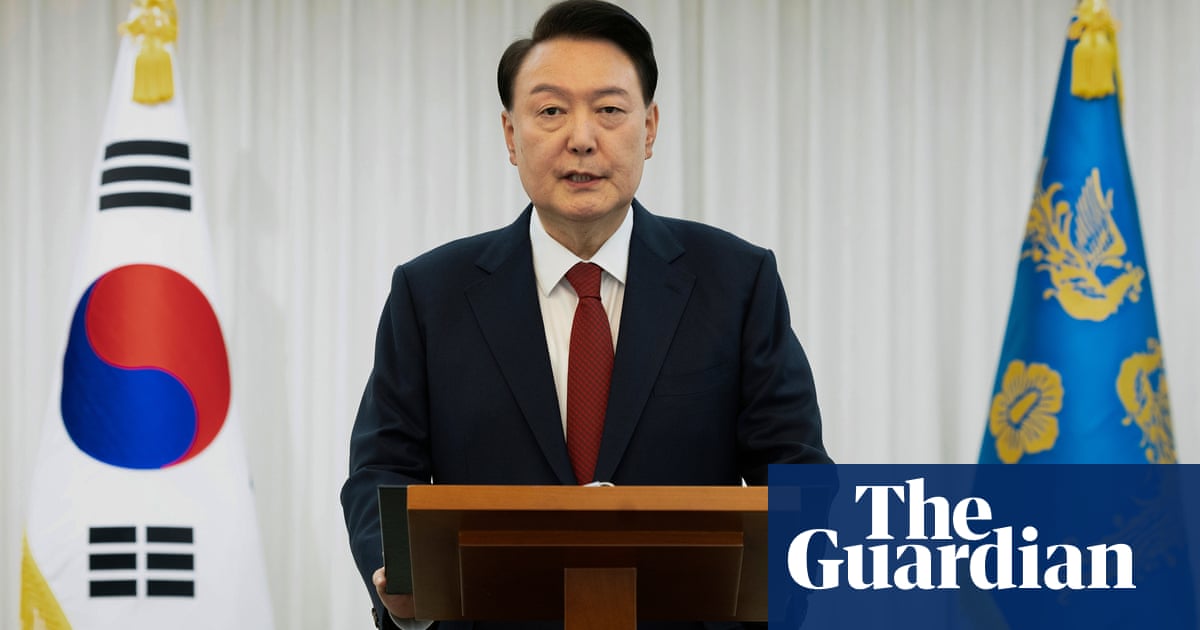A South Korean court has approved an arrest warrant for President Yoon Suk Yeol, who was impeached and suspended from power over his decision to impose martial law on 3 December, investigating authorities said.
The Corruption Investigation Office for High-ranking Officials (CIO) confirmed a Seoul court approved the warrant requested by investigators examining Yoon’s short-lived imposition of martial law.
“The arrest warrant and search warrant for President Yoon Suk Yeol, requested by the Joint Investigation Headquarters, were issued this morning,” the Joint Investigation Headquarters said in a statement.
Yoon Kab-keun, a lawyer for impeached president Yoon described the move as “illegal and invalid”.
“The arrest warrant and search and seizure warrant issued at the request of an agency without investigative authority are illegal and invalid,” the lawyer said in a statement.
South Korean law enforcement officials sought the warrant to question Yoon over allegations of abuse of authority and orchestrating a rebellion.
This is the first arrest warrant issued for an incumbent president in South Korea, according to local media.
The CIO did not comment on the court’s reasoning for granting the request . The court declined to comment.
It was unclear when or how the arrest warrant for Yoon will be carried out. South Korea’s presidential security service said in a statement on Tuesday that it will treat the arrest warrant according to due process.
The current arrest warrant is valid until 6 January, and once it is exercised, Yoon is expected to be held at the Seoul Detention Centre, Yonhap news agency said citing CIO.
But, under South Korean law locations potentially linked to military secrets cannot be seized or searched without the consent of the person in charge, and it’s unlikely that Yoon will voluntarily leave his residence if he faces arrest.
Police were deployed early on Tuesday outside Yoon’s residence in central Seoul, in a likely bid to head off scuffles. Yoon’s supporters and protesters calling for his removal have both staked out his residence, with local media running images of altercations between the two camps overnight.
Previously, police have tried but failed to successfully raid the presidential office as part of the investigation, due to the presidential security service blocking access.
“Unless Yoon voluntarily lets them detain him, there is no way to detain him,” said Choi Jin, director of the Seoul-based Institute of Presidential Leadership. “Should investigators have hand-to-hand fights with the security service?”
Choi said that investigators were still likely to visit Yoon’s residence to show they are strictly and fairly carrying out their work.
Park Sung-min, president of Seoul-based political consulting firm MIN Consulting, said the push for an arrest warrant was probably an attempt to pressure Yoon to cooperate with investigations.
Yoon is facing a criminal investigation into claims of insurrection, one of the few charges for which a South Korean president does not have immunity.
The acting leader of South Korea’s ruling People Power Party, Kweon Seong-dong, said on Tuesday that attempting to detain a sitting president is inappropriate, according to Yonhap news agency.
Yoon’s presidential powers were suspended after the National Assembly voted to impeach him on 14 December over his imposition of martial law that lasted only hours but has triggered weeks of political turmoil, halted high-level diplomacy and rattled financial markets. A constitutional court ruling is pending on whether to confirm the impeachment.
With Reuters, Associated Press and Agence France-Presse

